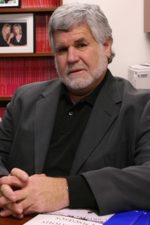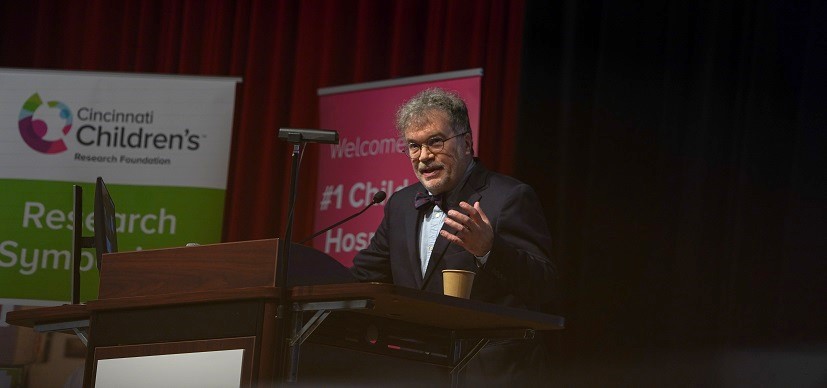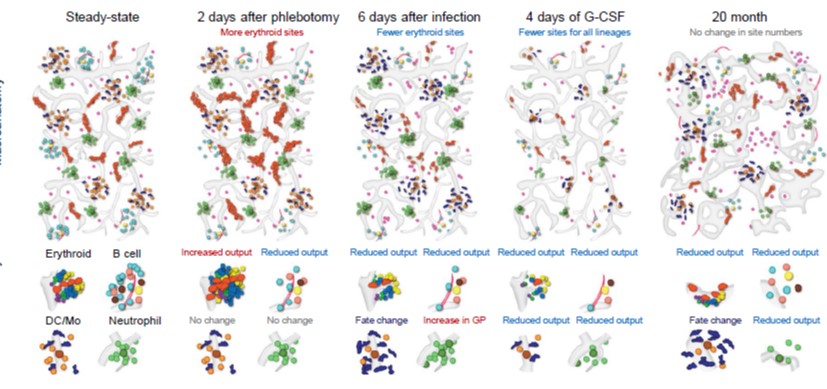Drug Candidate Shows ‘Potent Anti-Herpes Activity’
Post Date: June 17, 2021 | Publish Date:

“Our results challenge the traditional belief that herpes simplex disease is not effectively treatable.”
–David I. Bernstein, MD, MA
Innovative Molecules GmbH, a drug development company in Germany, reports that its drug candidate IM-250 showed benefit in animal models as a treatment for herpes simplex virus (HSV) infections.
A study detailing the results–co-authored by David I. Bernstein, MD, MA, at Cincinnati Children’s–was published online June 16, 2021, in Science Translational Medicine.
HSV infections, which can last a lifetime, represent a massive global health burden. At least 50% of the population is infected with herpes simplex virus type 1 (HSV-1) and about 25% of the population is infected with herpes simplex virus type 2 (HSV-2). In addition to its own symptoms, HSV infections increase risk for acquiring HIV, HPV and Alzheimer’s disease.
IM-250, a helicase-primase inhibitor, demonstrated effects against acute and chronic neural Herpes simplex virus (HSV) infections in mice and guinea pigs.
“In various animal models of HSV, IM-250 demonstrated potent anti-herpes activity, a novel mechanism of action, a low frequency of HSV resistance, and a favorable pharmacokinetic and safety profile,” the company states in its announcement.
IM-250 appears not to cause off-target activity observed with other anti-HSV drugs. The compound shows improved ability to reach targeted brain tissue and exhibits superior efficacy in preventing and treating HSV infection and disease in animal models compared to the standard of care, valacyclovir (VAVC).
The compound also reduced symptom duration, time to healing, frequency of recurrences and viral shedding.
“IM-250 has distinct advantages over standard-of-care therapies and represents a promising therapeutic for chronic HSV infection, including nucleoside-resistant Herpes simplex,” says Prof. Dr. Gerald Kleymann, CEO and founder of Innovative Molecules, and senior author of the study. “The most outstanding observation is its ability to attenuate recurrent infections and based on our preliminary results there is hope that it could make infections of neurotrophic herpes simplex viruses treatable – even when they have established life-long latency after primary infection. To our knowledge, this has never been observed with any anti-HSV compound before.“
The study found benefits from intermittent monotherapy with IM-250 and with a combination therapy using IM-250 and VAVC.
“IM-250 bears the potential to overcome significant limitations of current HSV therapies regarding resistance, recurrent viral shedding and disease, and severe CNS or disseminated disease,” Bernstein says.
“Our results also challenge the traditional belief that herpes simplex disease is not effectively treatable,” he says. “While we do not yet understand how the drug affects latency or reactivation after cessation of treatment, we hypothesize that the application of the drug during an infection leads to a reduction or inactivation of latent DNA in neurons or to a reduction in the number of latently infected neurons.”
Bernstein has been a leader in vaccine research for years at Cincinnati Children’s. He and Richard Ward, PhD, conducted the early breakthrough research that ultimately led to the Rotarix vaccine, now in use worldwide to prevent deadly rotavirus infections.
Bernstein says more studies of IM-250 are planned at Cincinnati Children’s as part of a contract funded by the National Institutes of Health.
Learn more about vaccine research at Cincinnati Children’s






